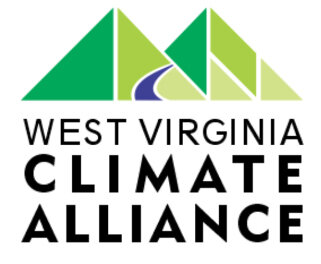Group Letter to Sen. Manchin on the Clean Electricity Performance Program
Sept. 13, 2021
The Honorable Joe Manchin
United States Senate
306 Hart Senate Office Building
Washington D.C. 20510
Dear Senator Manchin:
The undersigned organizations are urging you to support comprehensive climate investments as part of the budget reconciliation package currently being considered by Congress.
As a country, we have delayed taking action on the climate crisis for far too long. It is imperative to act now with a sense of urgency if we are going to avoid the worst impacts of climate change, such as more severe and deadly heat waves, more destructive wildfires, and more frequent and destructive floods.
As over 200 medical journals stated recently, the greatest threat to global public health is not the COVID pandemic, but rather the continued failure of world leaders to keep the global temperature rise below 1.5 degree Celsius, the threshold established by the U.N. Intergovernmental Panel on Climate Change (IPCC) as necessary to avoid the worst impacts of climate change.
Recently, you suggested that there is no need for Congress to adopt a Clean Electricity Performance Program (CEPP), stating that utility companies are already reducing their carbon dioxide (CO2) emissions. While it is true that nationally that utility companies are reducing their CO2 emissions, however, they are not reducing their emissions nearly enough to avoid the worst impacts of climate change.
While many utilities have committed to achieving zero carbon emissions by 2050, most are heavily weighting their reductions toward the end of that period, which would result in another two decades of a business-as-usual approach that simply fails to recognize the urgency of the need for immediate reductions in CO2 emissions. (Mon Power, for example, is expected to reach clean energy generation of less than ten percent well into this decade, rather than increasing clean electricity generation by four percent a year as would be required by a CEPP.)
_____
Clearly, the business-as-usual approach will not achieve adequate emission reductions to avoid significant and adverse consequences of the climate crisis.
_____
Under current trends, the United States may reduce CO2 emissions by perhaps 25 percent below 2005 levels by 2030. This reduction would fall far short of the 45 percent reduction needed to avoid the worst impacts of climate change, according to the IPCC.
Clearly, the business-as-usual approach will not achieve adequate emission reductions to avoid significant and adverse consequences of the climate crisis. A CEPP that requires 80 percent clean electricity nationally by 2030 coupled with technology neutral tax credits, are the cornerstones of the United States meeting its obligations to limit global warming below 1.5 degrees Celsius.
The upcoming Conference of Parties 26 in Glasgow offers the world perhaps its last best hope of keeping global warming below 1.5 degrees Celsius. In order to achieve this important goal, both the United States and China will have to significantly increase their nationally determined contributions. If the U.S. abdicates its leadership role in addressing the climate crisis, the Chinese government will have the perfect excuse for paying lip service to reducing their greenhouse gas emissions while avoiding real reforms.
Please do not give the Chinese an excuse to do nothing on emission reductions. Please provide a foundation for the United States to reassert its leadership on addressing climate change by supporting a robust CEPP and tax credits for installing clean energy. Apart from addressing the compelling need to address climate change, these measures would provide massive economic development and significant health benefits in West Virginia. Thank you for your consideration.
Sincerely,
Perry Bryant
West Virginia Climate Alliance
—
Angie Rosser
West Virginia Rivers Coalition
—
Jamie Van Nostrand
WVU School of Law Center on Energy and Sustainable Development
—
Allen Johnson
Christians for the Mountains
—
Mike Tidwell
Chesapeake Climate Action Network
—
Leah Barbour
West Virginia Solar United Neighbors
—
Jim Probst
Citizens’ Climate Lobby West Virginia
—
Robin Blakeman
West Virginia Interfaith Power and Light
—
Eric Engle
Mid-Ohio Valley Climate Action
—
Jim Kotcon
West Virginia Chapter of Sierra Club
—
Rachel Dash
Temple Israel Social Action Committee
—
Linda Frame
West Virginia Environmental Council
—
Julie Archer and Euphemia Kallas
League of Women Voters of West Virginia
—
Felipe Benitez
Corazón Latino
—
Pam Nixon
NAACP of West Virginia
—
Gary Zuckett
West Virginia Citizen Action Group


